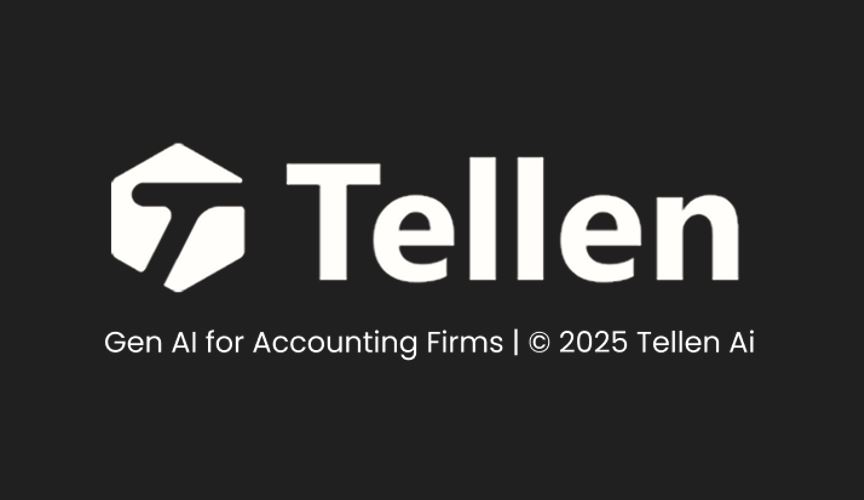By Jeff Gramlich, CPA, CITP
In today’s audit landscape, we’re witnessing the early stages of an AI revolution. But what happens when AI meets truly free-flowing, real-time, standardized financial data? Let’s look beyond the current buzz and explore what’s actually possible when we solve the data problem first.
The missing piece: Data that flows
While everyone’s talking about AI, there’s a crucial element that often gets overlooked: the quality and accessibility of the underlying data. According to a recent Gartner study, 78% of CFOs cite poor data quality as the biggest barrier to AI adoption in finance functions. Think of it like trying to build a smart city with roads that randomly change shape and direction. Before AI can transform audit, we need to solve the fundamental challenge of making financial data flow freely and consistently across systems.
What’s possible when data flows freely?
Real-time risk assessment: Imagine a world where your audit platform automatically flags unusual transactions the moment they occur, not months later during year-end procedures. With standardized, flowing data, AI could continuously monitor transaction patterns across thousands of clients, identifying potential risks before they become problems.
Predictive analytics that actually work: Picture this: You’re auditing a retail chain, and your AI assistant has already analyzed the company’s transaction data against weather patterns, local events, and market trends. The assistant flags that the company’s inventory levels are out of sync with predicted demand for certain items, helping you advise the client to order more items based on current information compared against historical records.
Cross-market intelligence: What if you could instantly benchmark a client’s performance not just against its direct competitors, but across industries and regions? With standardized, real-time data, AI could provide context that transforms standard audit procedures into strategic insights your clients can use to make intelligent decisions and forecasts.
Good data has the power to eliminate your blind spots
Recent research from the Harvard Business Review found that AI systems trained on incomplete or biased financial data can perpetuate and even amplify existing biases in decision-making. For example, an AI system trained primarily on large corporate data might incorrectly flag normal seasonal fluctuations in small retail businesses as high-risk transactions, or overlook industry-specific accounting practices in niche sectors.
Standardized, comprehensive data helps eliminate these blind spots. When every transaction is captured and normalized, AI systems can:
- Identify patterns that might be missed due to unconscious human biases.
- Provide consistent evaluation criteria across all clients.
- Create audit trails that make decision-making transparent and accountable.
- Flag potential ethical concerns based on comprehensive pattern analysis—from unusual related-party transactions to patterns of small adjustments across periods that could indicate systematic misstatement.
Risk mitigation in the AI era: Why better data means better protection
In an environment of increasing regulatory scrutiny around AI use, accounting firms need a robust foundation for their technology adoption. Recent guidance from audit regulators emphasizes the importance of documented, traceable decision-making processes when using AI. Standardized, comprehensive data provides:
- Complete audit trails for every AI-assisted decision.
- Documented evidence of methodology compliance.
- Protection against challenges to AI-influenced conclusions.
- Clear demonstration of adherence to emerging AI governance frameworks.
As one Big Four partner noted in a recent Financial Reporting Council roundtable, “The firms that will succeed with AI aren’t the ones taking risks—they’re the ones managing risks through better data quality.”
The evolving role of auditors
Future auditors aren’t being replaced—they’re being empowered. Think of it as moving from being a data detective to a strategic advisor. This evolution includes:
1. From sample testing to complete coverage: Where auditors once spent hours selecting and testing transaction samples, standardized granular data enables:
- 100% population testing rather than sample-based approaches.
- Automated three-way matching for purchase orders, receipts, and invoices.
- Real-time substantive procedures rather than year-end testing.
- Continuous control monitoring instead of point-in-time assessments.
2. New areas of expertise: Today’s auditors are developing expertise in:
- AI systems governance: Who audits the AI? Increasingly, it’s us.
- ESG and sustainability reporting: As reporting requirements expand, so does our role.
- Distributed ledger technology: While blockchain was once seen as a threat to audit, we now provide assurance over distributed ledger implementations, smart contracts, and end-to-end transaction flows, ensuring process integrity and transparency across entire value chains.
- Cybersecurity assessment: Data security is becoming inseparable from financial security.
3. The art of AI collaboration: McKinsey reports that firms combining human expertise with AI see a 66% higher success rate in digital transformation initiatives. The key? Auditors who know how to:
- Frame the right questions for AI analysis.
- Interpret and contextualize AI findings for clients.
- Provide real-time strategic guidance based on AI insights.
Four innovations made possible when data flows
The future of audit isn’t just about doing the same things faster—it’s about doing things we never thought possible:
1. Continuous certification: Rather than annual audits, imagine providing continuous assurance through AI-powered monitoring of standardized data streams.
2. Predictive compliance: AI systems that flag potential regulatory issues before they occur, based on patterns identified across millions of transactions.
3. Automated reconciliation: Systems that can instantly verify transactions across multiple parties and platforms, making traditional sampling obsolete.
4. Timely and meaningful insights: Helping your clients run a better business.
The bridge to tomorrow’s audit
While this future might sound distant, the foundations are being built today. The key is creating systems that can standardize and process financial data from any source, making it truly accessible for AI applications.
That’s why companies that produce AI-driven data engines are focused on solving the data problem first. Future-forward data ingestion and standardization technologies, like Validis, don’t just standardize financial data—they create complete audit trails, validate data integrity, and ensure every transaction is traceable to its source.
What’s next?
The accounting firms that will lead the future of audit aren’t just the ones investing in AI—they’re the ones ensuring they have the standardized, flowing data needed to power it. As you plan your firm’s technology roadmap, ask yourself: Do you have the data foundation to support AI adoption while managing regulatory risk?
ABOUT THE AUTHOR:
Jeff Gramlich CPA, CITP, is managing director of accounting at Validis. Consistently recognized in Accounting Today’s “Top 100 Most Influential People in Accounting,” Jeff has held pivotal roles including president and CEO of the Small Firm Services business unit at CCH and president of AccountantsWorld. His speaking roster includes the AICPA, LEA, Allinial Global, and the BDO Alliance, and he contributes to publications including Accounting Today and CPA Practice Advisor’s Technology Lab podcast. At Validis, Jeff helps firms harness technology for enhanced audit processes. He believes that by embracing technology, firms can make quicker, more informed decisions, ultimately elevating the entire profession.
Thanks for reading CPA Practice Advisor!
Subscribe Already registered? Log In
Need more information? Read the FAQs




